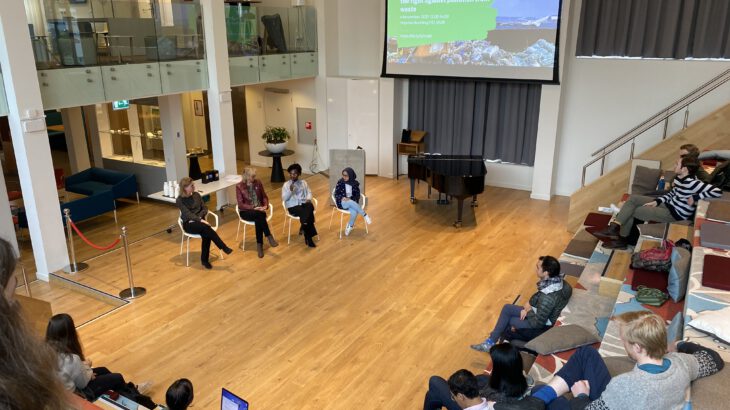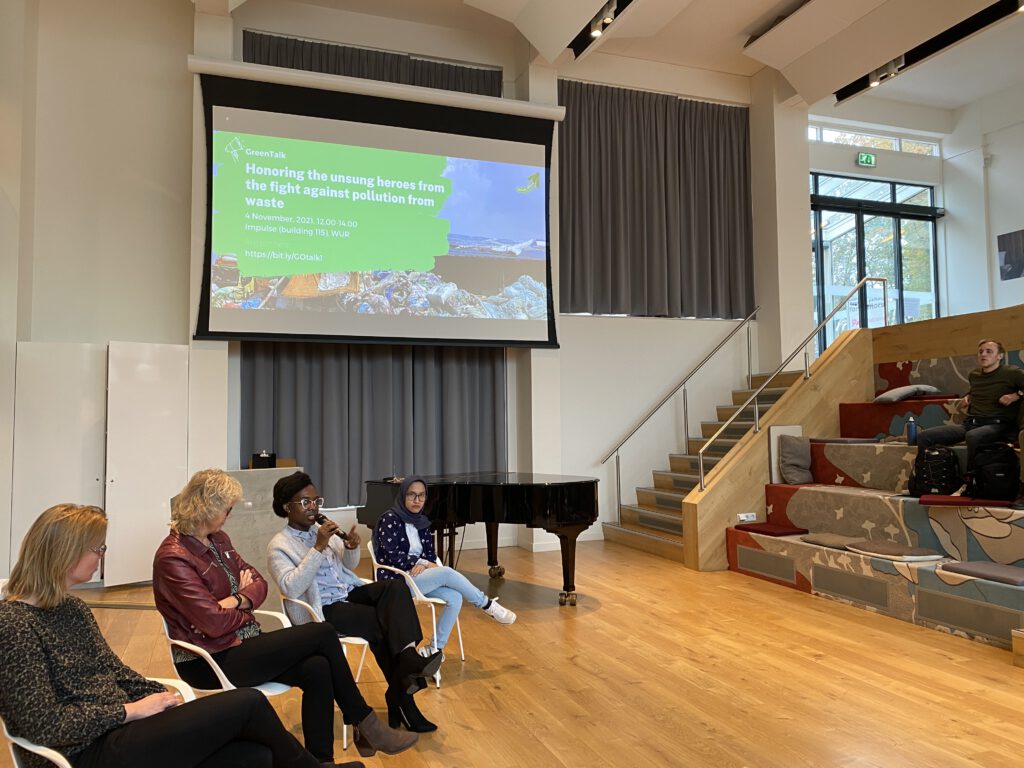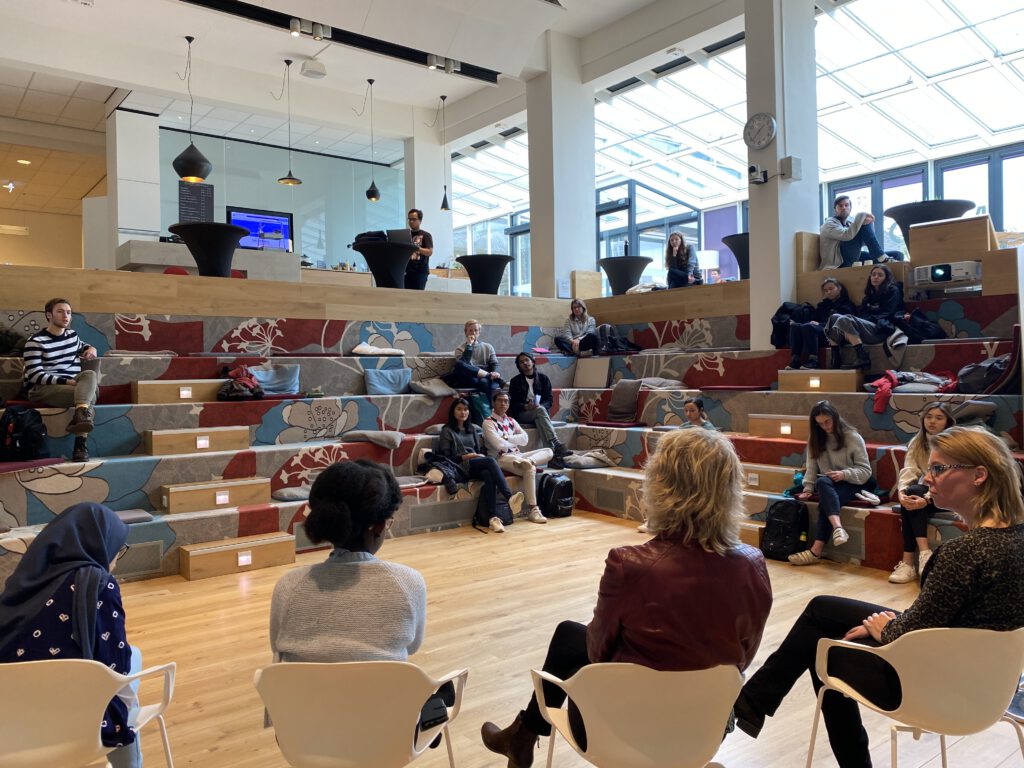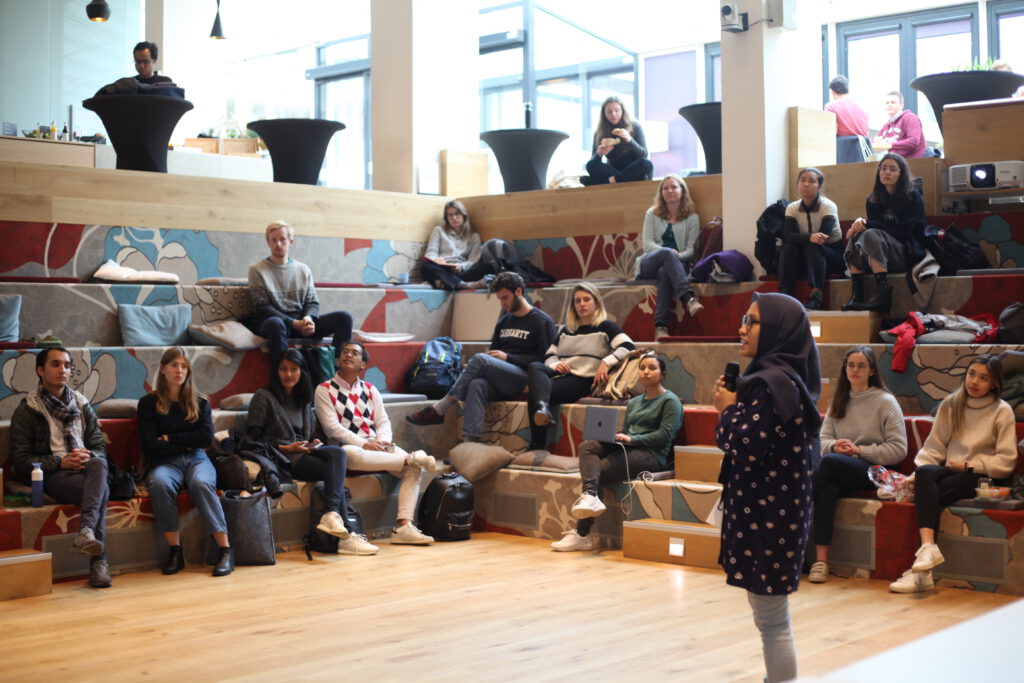Green Talk : Honoring the unsung heroes from the fight against plastic pollution
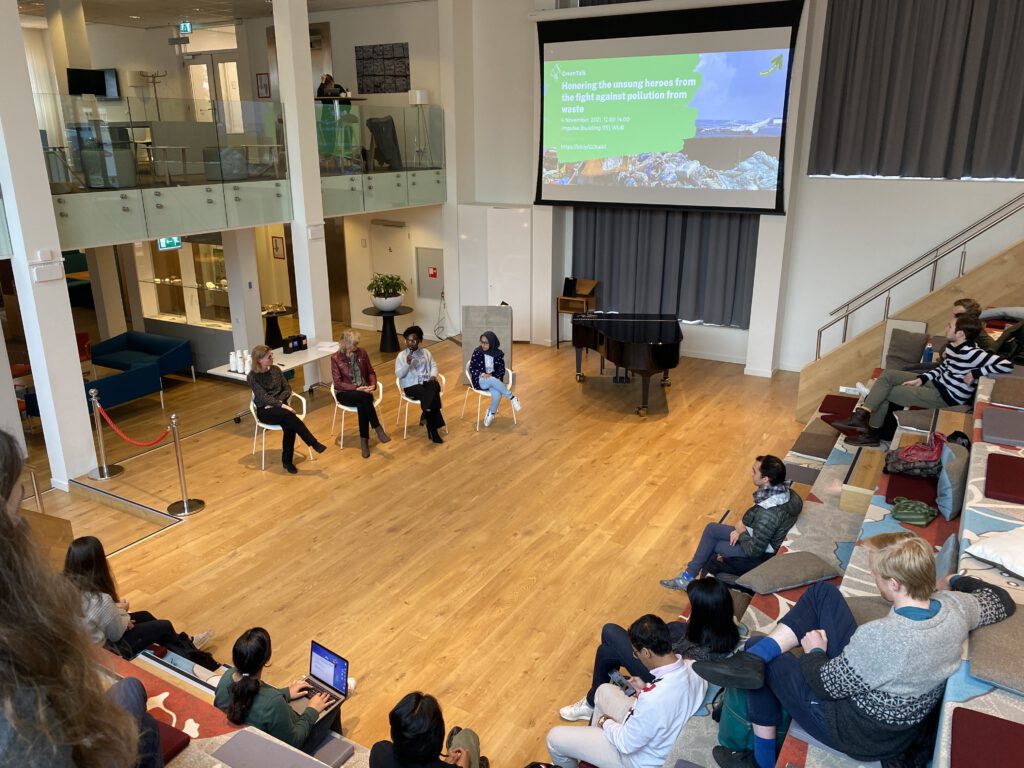
The Green Office Wageningen successfully conducted the first circularity talk on Thursday, November 4th 2021, at the Impulse building, WUR. This talk centred on the recycling problem in developing countries and the role of informal and independent waste management in combating plastic pollution. Twenty-four students attended the lunch talk and were very enthusiastic to hear the various waste management problem from four speakers.
The first speaker was Judith van Leeuwen discussed the paradox she observed in the informal sector in Indonesia. The informal sector there plays a significant role in making waste a resource, as this sector recycles ten per cent of single-use plastics. In fact, the informal sector is already a “circular” actor, as they focus on closing the loop of valuable material by reusing and recycling it. However, efforts to become more circular push the informal sector out of the “circular” system. So, she questions whether the circular efforts will dismiss the independent or informal waste management to the eventual losers.
The second speaker, Rose Pinto, specifically spoke about the informal recycling sectors in Ghana. She argued how plastic pollution is a significant problem in Ghana. Fortunately, there are already great initiatives by the informal and private sectors to combat it—for example, giving incentives to people to collect waste, which can be sold to recycling companies.
Nadhira Putri elaborated on her thesis about circular packaging in Jakarta and gave insights on how plastics can be recycled and reused by the informal sector in Jakarta and what can be done to improve it. She also highlights that in Jakarta, private companies are the drivers of change in combating plastic pollution and helping to give informal and independent waste management tools to improve their working strategy.
Finally, Sophie van den Bergen discussed FINILOOP, a new way of dealing with plastic waste and recycling in developing countries. This initiative was piloted in India, and she argues that India can be a leader and example of improved waste management systems that work based on the piloted project.
A panel discussion followed after the four speakers presented their ideas. Many attendances ask interesting and critical questions such as, “As plastics cannot be recycled and reused forever, is it delusional to think about circular economy and plastics?” The panellists argued that a circular economy is not a goal, but a means to ensure sustainable consumption of resources and reduce the negative impacts of plastic pollution. Furthermore, a circular economy is needed to make producers more aware of plastic pollution and give incentives to explore future pathways. We should focus less on the term and look more at feasible and desirable systems.
It was a lovely discussion. Many students came because they wanted to learn more about the circular economy, waste management in developing countries, and the role of informal and independent waste management in combating plastic pollution. Further information about these topics can be downloaded here.
